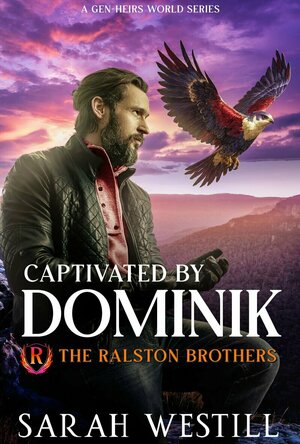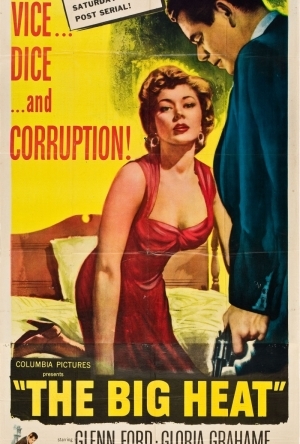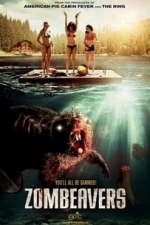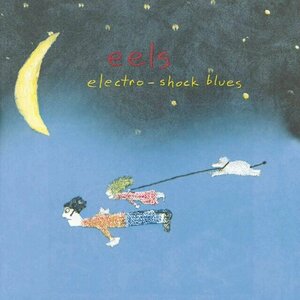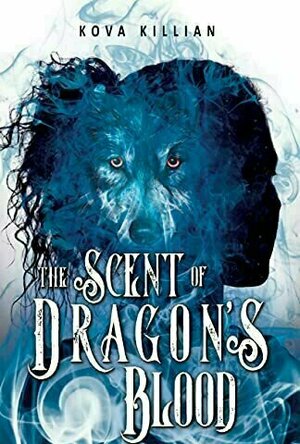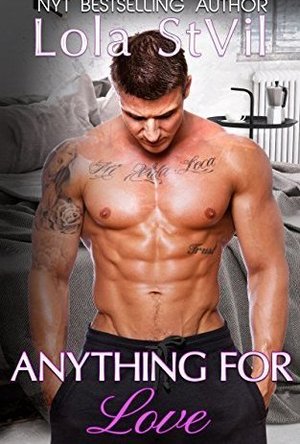Search
Search results
Debbiereadsbook (1669 KP) rated Captivated by Dominik (The Ralston Brothers) in Books
Jan 27, 2026
I just felt I missing *something*
Independent reviewer for BookSirens, I was gifted my copy of this book.
This appears to be a spin off series, in the Gen-Heirs world. I need to comment at that before I start.
For ME, and I stress ME, I think I maybe should have read some other books in this world to get the feel of it fully. I found myself feeling (and ya'll know about me sharing my book feelings!) I was missing some vital information that I should know about this world. At more than one point, I thought I had missed something but no, it was jusy dropped in like I knew what they were talking about.
The most obvious one, was what happened to the world almost a thousand years ago. I have know no idea, not a single clue as to what happened. Did I miss something along the way? I dunno. But book feelings are important to share and I'm-a sharing.
What I did like, though, was that this was a different world and the rules are different. They think nothing of contracting out a marriage a year, and then they move on. Or I should say, the powers that be do. Sienna struggled. Dominik comes along, as bodyguard for a mission, and she is thrown for a loop when he changes the contract to 5 years. But Dominik is a Beast Master, to Alisater, a hawk. The animal knows before the person does.
I liked that Dominink let Sienna call all the shots in their personal relationship. He let her know that he WOULD touch her, but only when she asked. And he waits. He lets Sienna, at every point, move their relationship along. I loved that she trusted him enough to do that. It gets steamy and smexy once Sienna really lets Dominik in.
I liked that both Sienna and Dominik get a say, as does Alisater when he's talking to Dominik. The bird has opinions! You get into both their minds, as they navigate this new contract, the mission and their growing feelings.
I think I'll read something else by this author, maybe about Dominik's siblings. I might find what I'm missing here.
A thoroughly enjoyable 4 star read
*same worded review will appear elsewhere
This appears to be a spin off series, in the Gen-Heirs world. I need to comment at that before I start.
For ME, and I stress ME, I think I maybe should have read some other books in this world to get the feel of it fully. I found myself feeling (and ya'll know about me sharing my book feelings!) I was missing some vital information that I should know about this world. At more than one point, I thought I had missed something but no, it was jusy dropped in like I knew what they were talking about.
The most obvious one, was what happened to the world almost a thousand years ago. I have know no idea, not a single clue as to what happened. Did I miss something along the way? I dunno. But book feelings are important to share and I'm-a sharing.
What I did like, though, was that this was a different world and the rules are different. They think nothing of contracting out a marriage a year, and then they move on. Or I should say, the powers that be do. Sienna struggled. Dominik comes along, as bodyguard for a mission, and she is thrown for a loop when he changes the contract to 5 years. But Dominik is a Beast Master, to Alisater, a hawk. The animal knows before the person does.
I liked that Dominink let Sienna call all the shots in their personal relationship. He let her know that he WOULD touch her, but only when she asked. And he waits. He lets Sienna, at every point, move their relationship along. I loved that she trusted him enough to do that. It gets steamy and smexy once Sienna really lets Dominik in.
I liked that both Sienna and Dominik get a say, as does Alisater when he's talking to Dominik. The bird has opinions! You get into both their minds, as they navigate this new contract, the mission and their growing feelings.
I think I'll read something else by this author, maybe about Dominik's siblings. I might find what I'm missing here.
A thoroughly enjoyable 4 star read
*same worded review will appear elsewhere
Phillip McSween (751 KP) rated The Big Heat (1953) in Movies
Jan 16, 2018
Fun Classic
I can imagine that some of the cool scenes that happened in The Big Heat were well ahead of their time. One scene in particular was a car explosion created with strong sound, camera rumblings, and a bright flash of light outside of a window. Seems simple and subtle, but its impact was jarring at that point in the movie.
The film missed a few steps, wasn't perfect by any means. In fact, one can argue that there was one glaring plothole throughout just staring at you the entire time. I didn't realize it until there was about half an hour left, but it made me stop and say, "Wait...what? But why didn't they just...ok. Whatevs." Call me old, but I'm learning to let things go. Good doesn't mean perfect. The Big Heat falls well of perfection but it gets the job done.
There is a lot to digest throughout the film so make sure to keep up. This isn't a film you watch while browsing Google or folding clothes. I had to rely on protagonist Dave Bannion (Glenn Ford) to keep me on track. His screen time has a way of captivating you as you quickly come to love this character. In a town full of "yellow-bellied ninnies", Bannion wasn't afraid to stand up to the mob and what he knew to be true. Dude was so tough he gave others the courage to stand up as well. Props.
The film did lose me in spots and lost a few points as a result. At its core, though, is a movie that ultimately gets it right. In Bannion's efforts to get to the bottom of a cop committing suicide, the audience is taken on a thrilling journey that I hope to revisit at some point down the road. I give The Big Heat an 81.
The film missed a few steps, wasn't perfect by any means. In fact, one can argue that there was one glaring plothole throughout just staring at you the entire time. I didn't realize it until there was about half an hour left, but it made me stop and say, "Wait...what? But why didn't they just...ok. Whatevs." Call me old, but I'm learning to let things go. Good doesn't mean perfect. The Big Heat falls well of perfection but it gets the job done.
There is a lot to digest throughout the film so make sure to keep up. This isn't a film you watch while browsing Google or folding clothes. I had to rely on protagonist Dave Bannion (Glenn Ford) to keep me on track. His screen time has a way of captivating you as you quickly come to love this character. In a town full of "yellow-bellied ninnies", Bannion wasn't afraid to stand up to the mob and what he knew to be true. Dude was so tough he gave others the courage to stand up as well. Props.
The film did lose me in spots and lost a few points as a result. At its core, though, is a movie that ultimately gets it right. In Bannion's efforts to get to the bottom of a cop committing suicide, the audience is taken on a thrilling journey that I hope to revisit at some point down the road. I give The Big Heat an 81.
Caffeinated Fae (464 KP) rated Falling for Mr. Slater in Books
Jul 12, 2018
I am rating this 4 1/2 stars but because of goodreads decision to not have half stars, I round up.
I was fortunate enough to get an advanced copy of this book and boy was I excited! Kendall Day (Grey) writes hilarious romances with some very steamy sex scenes. When I read her description of the book, I'll admit, I was a little hesitant but I am glad that I picked it up and read it.
I really wasn't sure what to expect. But I really fell in love with all of the characters. Roxie (with an ie) is hilarious. She is the kind of character you expect to read when you pick up a Kendall Grey novel. She is sassy, she curses, and she's surprisingly touching. When I read this book, I couldn't help but relate to Roxie. I think many people will be able to read this book and find something they can relate to. Not to be outdone, Mr. Slater is an all around good character. He is the definition of a burnt out teacher with his heart in the right place. It was a fun experience to see them both grow as characters.
The Plot was interesting and it really did have me on the edge of my seat. I never knew what was going to happen next and at times I actually teared up which is one of the highest complements I can give an author. I love when a book makes me feel something enough to show emotion.
All in all, I really liked this book. If you love Kendall Grey, give Kendall Day a chance to wow you.
**I received this book in exchange for an honest review**
I was fortunate enough to get an advanced copy of this book and boy was I excited! Kendall Day (Grey) writes hilarious romances with some very steamy sex scenes. When I read her description of the book, I'll admit, I was a little hesitant but I am glad that I picked it up and read it.
I really wasn't sure what to expect. But I really fell in love with all of the characters. Roxie (with an ie) is hilarious. She is the kind of character you expect to read when you pick up a Kendall Grey novel. She is sassy, she curses, and she's surprisingly touching. When I read this book, I couldn't help but relate to Roxie. I think many people will be able to read this book and find something they can relate to. Not to be outdone, Mr. Slater is an all around good character. He is the definition of a burnt out teacher with his heart in the right place. It was a fun experience to see them both grow as characters.
The Plot was interesting and it really did have me on the edge of my seat. I never knew what was going to happen next and at times I actually teared up which is one of the highest complements I can give an author. I love when a book makes me feel something enough to show emotion.
All in all, I really liked this book. If you love Kendall Grey, give Kendall Day a chance to wow you.
**I received this book in exchange for an honest review**
Scott Tostik (389 KP) rated Zombeavers (2015) in Movies
Jan 4, 2019
Cool Cameos (2 more)
John Mayer and Bill Burr... That's right I said John Fuckin Mayer
B Movie Hall of Fame candidate
Zom what???
Upon forst look, a title like Zombeavers, kind of makes you think of porn... Rob Rotten porn... But once you dive ( get it...dive) into Zombeavers you cant help bit want to stick around and see what these creatures look like.
And, in all cheesey movie goodness... The hand puppeted varments look like shit... They flop around aimlessly in an attempt to look like they are attacking with great vigor... Only to come across like a dying trout, flipping and slopping through the air on the ground.
Bill Burr and a nearly unrecognizable John Mayer open the movie as two good ol boy toxic waste drivers who "unknowingly" dump a barrel of some kind of hazardous chemicals off their truck as they're discussing prison sex and gettin blown by dudes... Comedic genius honestly... It's brilliant.
But overall, this cast of not a lot of anyones... Including some chick from American Soap Opera Days of our Lives... And some other girl from Death House can not save this trainwreck of a film. Its good in a way that is meant not to be good.
Over all cheese factor... Tostitos Con Queso Cheese Dip... That was left out of the fridge and had papers piled in top of it on your coffee table... So when you open it, it attacks your senses in all the wrong days.
While I'd love to give it a higher rating... I can not see giving it over a five.
And, in all cheesey movie goodness... The hand puppeted varments look like shit... They flop around aimlessly in an attempt to look like they are attacking with great vigor... Only to come across like a dying trout, flipping and slopping through the air on the ground.
Bill Burr and a nearly unrecognizable John Mayer open the movie as two good ol boy toxic waste drivers who "unknowingly" dump a barrel of some kind of hazardous chemicals off their truck as they're discussing prison sex and gettin blown by dudes... Comedic genius honestly... It's brilliant.
But overall, this cast of not a lot of anyones... Including some chick from American Soap Opera Days of our Lives... And some other girl from Death House can not save this trainwreck of a film. Its good in a way that is meant not to be good.
Over all cheese factor... Tostitos Con Queso Cheese Dip... That was left out of the fridge and had papers piled in top of it on your coffee table... So when you open it, it attacks your senses in all the wrong days.
While I'd love to give it a higher rating... I can not see giving it over a five.
FF
First, Fast, Fearless: How to Lead Like a Navy SEAL
Book
Los Angeles Times bestseller. Seal-style leadership - your best weapon in today's complex business...
Phillip Youmans recommended City Of God (2002) in Movies (curated)
Jonathan Higgs recommended Electro-Shock Blues by Eels in Music (curated)
Lyndsey Gollogly (2893 KP) rated The Scent of Dragon’s Blood ( The Tattered Realm book 1) in Books
Sep 7, 2022
161 of 230
Kindle
The Scent of Dragon’s Blood ( The Tatteted Realm book 1)
By Kova Killian
⭐️⭐️
When the Knight in shining armor needs saving, you send in his hybrid monster girlfriend. . . and her squishy human friend to save the day.
"It's tragic how something so beautiful has been twisted into something so fearful."
Cree has been on the run from the Dread behemoth King since she was a child for crimes her mother committed.
Crimes. . .
Her mother didn’t mean to.
Cree never thought she would fall for one of the knights that stalk her. . . let alone the captain that protects the king. But she did.
And now he’s cursed.
To keep them both safe, she hides in the realm behind The Mirror.
Humans are strange creatures, but in her short year in their realm, they have time and time again shown their kindness.
Too bad the Hunter finds her. And now her human friend, who has no idea how to protect herself, is in danger of the King and his knights.
At least she found a counter curse for her knight. . . maybe.
So what do you do when the knight in shining armor needs saving? You send in his hybrid monster girlfriend. . . and her squishy human friend to save the day.
This book holds so much potential! The premise was good, the characters were good and it really is something I’d like to see developed. But the whole thing was so rushed you just fumbled through each chapter wondering what the hell. I just couldn’t push past how rushed it was which is such a shame. It also left a lot to guess work to I mean a 40ft Wolf??? Was that her sarcasm?? Or maybe it’s really late and I should sleep!
Kindle
The Scent of Dragon’s Blood ( The Tatteted Realm book 1)
By Kova Killian
⭐️⭐️
When the Knight in shining armor needs saving, you send in his hybrid monster girlfriend. . . and her squishy human friend to save the day.
"It's tragic how something so beautiful has been twisted into something so fearful."
Cree has been on the run from the Dread behemoth King since she was a child for crimes her mother committed.
Crimes. . .
Her mother didn’t mean to.
Cree never thought she would fall for one of the knights that stalk her. . . let alone the captain that protects the king. But she did.
And now he’s cursed.
To keep them both safe, she hides in the realm behind The Mirror.
Humans are strange creatures, but in her short year in their realm, they have time and time again shown their kindness.
Too bad the Hunter finds her. And now her human friend, who has no idea how to protect herself, is in danger of the King and his knights.
At least she found a counter curse for her knight. . . maybe.
So what do you do when the knight in shining armor needs saving? You send in his hybrid monster girlfriend. . . and her squishy human friend to save the day.
This book holds so much potential! The premise was good, the characters were good and it really is something I’d like to see developed. But the whole thing was so rushed you just fumbled through each chapter wondering what the hell. I just couldn’t push past how rushed it was which is such a shame. It also left a lot to guess work to I mean a 40ft Wolf??? Was that her sarcasm?? Or maybe it’s really late and I should sleep!
KittyMiku (138 KP) rated Anything For Love in Books
Apr 10, 2019
Relatable characters (1 more)
Full of mystery and action
Contains spoilers, click to show
I would first like to say I don't normally like these short little romance novels, but I really enjoyed this one. I often find the short romance novels like this are rushed or leaves something to be desired at the end. In Anything for Love, I found that the story was relatable and quite enjoyable to read. It left you smiling at the end and it felt complete. I don't have many complaints, just a few grammatical errors that are easily overlooked, as there might have been at most five in total. It was the characters that made the story for me, especially Winter.
Winter's past was rough, especially where her ex, Danny, was concerned. With the betrayal and manipulative nature he had, I wouldn't have blamed Winter for closing herself off to the world of dating. Even though you don't get the full extent of what he did to her, besides being a jerk, until she tells Wyatt why she is so closed off to him, you can't help but understand what she is going through. Most women swear off dating when they break up with a particular nasty relationship. Though, it rarely sticks, its not hard to see Winter is a vary realistic character, that many women can relate to. It was very nice to see that she had made up her mind and did everything in her power to stay away from Wyatt, knowing she wasn't ready for a relationship or to trust another man. It wasn't just her heart and how I could relate to her in the romance department that got me, it was her strength and determination to protect the children she helped. Her concern and kindness for the kids who are in group homes waiting to be adopted, melted my heart. It was very clear that those kids meant the world to her, even more than her own life. Not many people would stand up to a gang and even deny them a new recruit, putting their life at risk, to protect a child that wasn't theirs and yet she did. She not only kept the kid, Carlos, safe from the gang life, but she made sure she got him into an art class, so that he would be able to further his education on that which he loves. It made it easy to see how someone could fall in love with her.
While Winter is a little closed off to dating and more focused on the kids that attend her center, Wyatt is more determined to win her over while being the cop he is. At first you want to hate him. He comes off arrogant and career oriented, as well as a horn dog. It is clear he wants to be with her sexually and his determination makes you slightly wonder if he would do anything unsavory to achieve this. However, that opinion dissolves quickly after Winter allows him to take her out to hang out a bit during a Halloween party her co-worker and bestfriend throws. Wyatt shows genuine interest in Winter and even appears to be a really good guy, but what amazed me was that fact he never did anything to push her into kissing him, having sex or anything. He was patient, kind and understanding, even before Winter finally told him what Danny had done to her in her past. Though he seemed demanding and a bit of someone who would be controlling, it was nice to see the softer side of him too. To be able to find someone who won't take no as an answer, but also be patient and considerate of another's feelings is a rare trait to have. Normally, you don't see both those traits in a single person, but Wyatt has them and it makes for interesting guy. Your heart automatically goes out to him as you watch him be patient with Winter. At points, I found myself yelling at Winter because of how broken she was. I understand where she was coming from, having been in horrid relationships myself, but I would like to think if I was her, I would have been a bit more willing to trust him sooner than she did. Wyatt is a definite dream hunk and will be your book boyfriend if you only let him love you.
I have say that this book kept me thirsty for more, especially since so much was left out to keep it a bit suspenseful. I loved how the gang, Street Kings, was left alone after Winter confronts them to leave Carlos alone, that you nearly forget about them being in the picture. It made for a nice little dramatic event when they pop back up. Or when you learn more about Wyatt that is kept being hinted at throughout the story. I found this all to make quite a compelling story. It had the right amount of suspense, mystery and action to make this romance novel that perfect read in my opinion. I would recommend it to all my romance readers. I would rate this book 4 stars out of 5 stars simply because of the few grammar errors I had found while reading, Though they didn't take away from enjoying the book, I still wish they hadn't been present. It can ruin any grammar freak's day.
Anything for Love is free for the Kindle, and that's without Kinde Unlimited. It is also the first book in the series "The Hunter Brothers." I do hope you go to check it out and grab your copy from Amazon while it is free to grab. Happy Reading!
Winter's past was rough, especially where her ex, Danny, was concerned. With the betrayal and manipulative nature he had, I wouldn't have blamed Winter for closing herself off to the world of dating. Even though you don't get the full extent of what he did to her, besides being a jerk, until she tells Wyatt why she is so closed off to him, you can't help but understand what she is going through. Most women swear off dating when they break up with a particular nasty relationship. Though, it rarely sticks, its not hard to see Winter is a vary realistic character, that many women can relate to. It was very nice to see that she had made up her mind and did everything in her power to stay away from Wyatt, knowing she wasn't ready for a relationship or to trust another man. It wasn't just her heart and how I could relate to her in the romance department that got me, it was her strength and determination to protect the children she helped. Her concern and kindness for the kids who are in group homes waiting to be adopted, melted my heart. It was very clear that those kids meant the world to her, even more than her own life. Not many people would stand up to a gang and even deny them a new recruit, putting their life at risk, to protect a child that wasn't theirs and yet she did. She not only kept the kid, Carlos, safe from the gang life, but she made sure she got him into an art class, so that he would be able to further his education on that which he loves. It made it easy to see how someone could fall in love with her.
While Winter is a little closed off to dating and more focused on the kids that attend her center, Wyatt is more determined to win her over while being the cop he is. At first you want to hate him. He comes off arrogant and career oriented, as well as a horn dog. It is clear he wants to be with her sexually and his determination makes you slightly wonder if he would do anything unsavory to achieve this. However, that opinion dissolves quickly after Winter allows him to take her out to hang out a bit during a Halloween party her co-worker and bestfriend throws. Wyatt shows genuine interest in Winter and even appears to be a really good guy, but what amazed me was that fact he never did anything to push her into kissing him, having sex or anything. He was patient, kind and understanding, even before Winter finally told him what Danny had done to her in her past. Though he seemed demanding and a bit of someone who would be controlling, it was nice to see the softer side of him too. To be able to find someone who won't take no as an answer, but also be patient and considerate of another's feelings is a rare trait to have. Normally, you don't see both those traits in a single person, but Wyatt has them and it makes for interesting guy. Your heart automatically goes out to him as you watch him be patient with Winter. At points, I found myself yelling at Winter because of how broken she was. I understand where she was coming from, having been in horrid relationships myself, but I would like to think if I was her, I would have been a bit more willing to trust him sooner than she did. Wyatt is a definite dream hunk and will be your book boyfriend if you only let him love you.
I have say that this book kept me thirsty for more, especially since so much was left out to keep it a bit suspenseful. I loved how the gang, Street Kings, was left alone after Winter confronts them to leave Carlos alone, that you nearly forget about them being in the picture. It made for a nice little dramatic event when they pop back up. Or when you learn more about Wyatt that is kept being hinted at throughout the story. I found this all to make quite a compelling story. It had the right amount of suspense, mystery and action to make this romance novel that perfect read in my opinion. I would recommend it to all my romance readers. I would rate this book 4 stars out of 5 stars simply because of the few grammar errors I had found while reading, Though they didn't take away from enjoying the book, I still wish they hadn't been present. It can ruin any grammar freak's day.
Anything for Love is free for the Kindle, and that's without Kinde Unlimited. It is also the first book in the series "The Hunter Brothers." I do hope you go to check it out and grab your copy from Amazon while it is free to grab. Happy Reading!

Pegasus Airlines
Travel and Business
App
IT’S EASY TO GET ON CLOUD NINE WITH PEGASUS MOBILE APP! Find Cheap Flights Ticket Now Install App...
